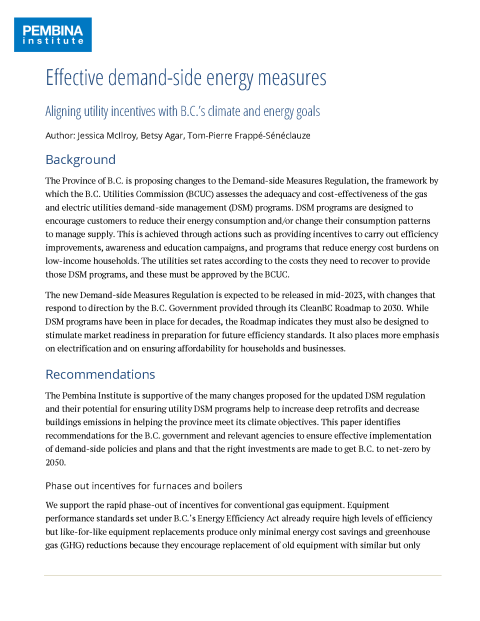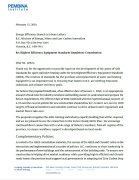The Province of B.C. is proposing changes to the Demand-side Measures Regulation, the framework by which the B.C. Utilities Commission (BCUC) assesses the adequacy and cost-effectiveness of the gas and electric utilities demand-side management (DSM) programs. DSM programs are designed to encourage customers to reduce their energy consumption and/or change their consumption patterns to manage supply. This is achieved through actions such as providing incentives to carry out efficiency improvements, awareness and education campaigns, and programs that reduce energy cost burdens on low-income households. The utilities set rates according to the costs they need to recover to provide those DSM programs, and these must be approved by the BCUC.
The new Demand-side Measures Regulation is expected to be released in mid-2023, with changes that respond to direction by the B.C. Government provided through its CleanBC Roadmap to 2030. While DSM programs have been in place for decades, the Roadmap indicates they must also be designed to stimulate market readiness in preparation for future efficiency standards. It also places more emphasis on electrification and on ensuring affordability for households and businesses.
The Pembina Institute is supportive of the many changes proposed for the updated DSM regulation and their potential for ensuring utility DSM programs help to increase deep retrofits and decrease buildings emissions in helping the province meet its climate objectives. This paper identifies recommendations for the B.C. government and relevant agencies to ensure effective implementation of demand-side policies and plans and that the right investments are made to get B.C. to net-zero by 2050.








